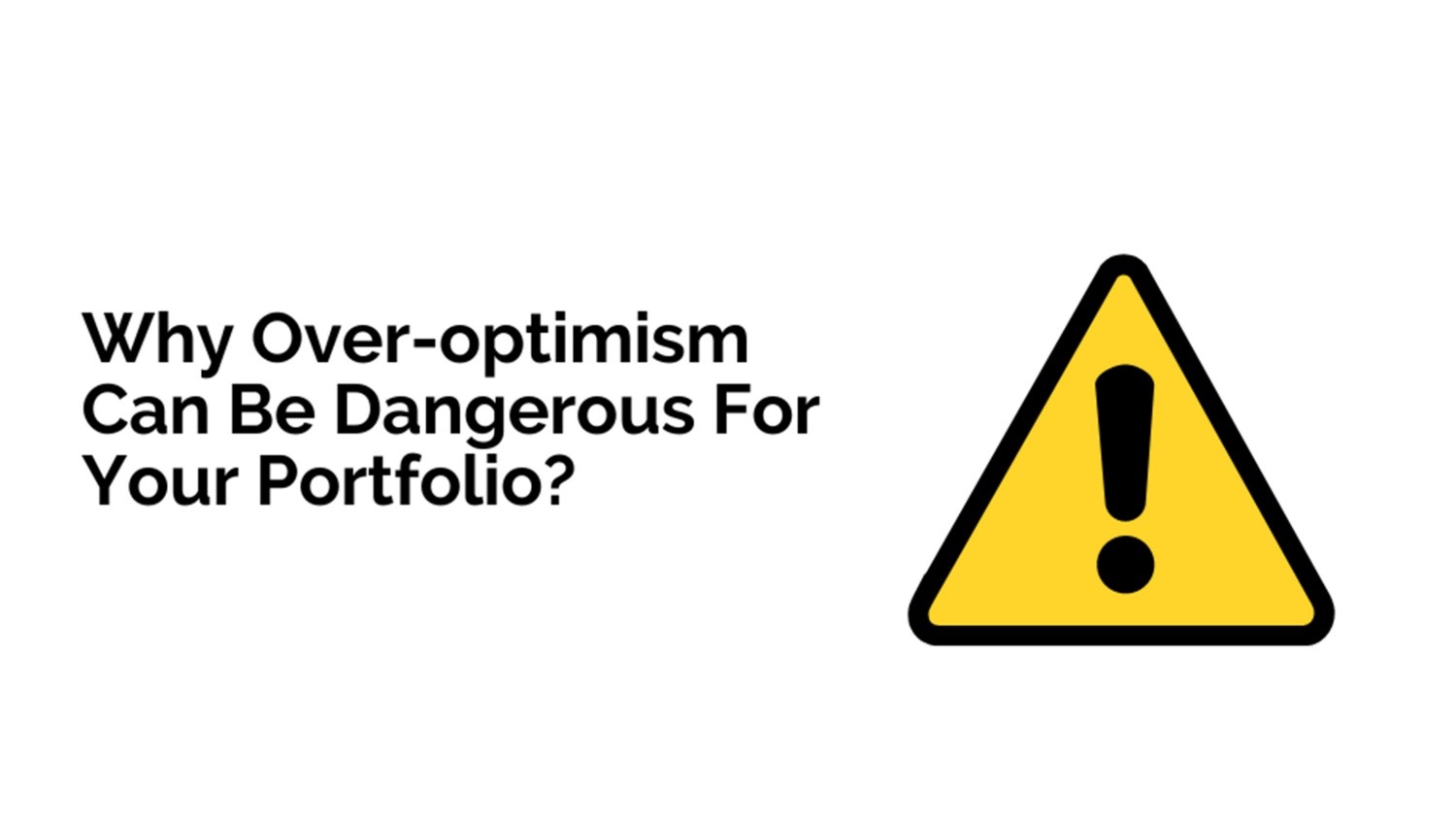Why Over-optimism Can Be Dangerous For Your Portfolio

About three centuries before the birth of Christ, Demosthenes, the most famous Greek orator, insightfully remarked, "What a man wishes, that also will he believe."
This profound observation, highlighted by Charlie Munger, underscores a fundamental aspect of human psychology: our tendency to succumb to over-optimism, especially in matters of personal finance.
This tendency of being overly optimistic, also known as financial overconfidence, holds a pretty big stake in how we handle our personal money matters. This mindset can cause you to cling to far-fetched money dreams and frequently results in risky investment choices.
The anticipation of big financial gains is tantalisingly tempting.
It's like a constant whisper in your ear, but it's vital to keep grounded - not everything that glitters turns out to be gold.
Normalcy of Excess Optimism
Demosthenes' observation that excess optimism is the normal human condition rings especially true in today's financial condition.
People's optimism often takes centrestage in matters of personal finance; you'll notice it when they gamble on lottery tickets dreaming of a jackpot or blindly invest in glitzy start-ups without fully appreciating the proven effectiveness of more traditional business structures.
Optimism, while it can be a real mood booster and kick-starter for ambition, may lead to big missteps in money management by making you think your finances will pan out better than they actually might.
Consequences of Over-optimism in Finance
The consequences of over-optimism in finance can be far-reaching.
Excessive confidence in investments can lead to disproportionate risk-taking, neglect of diversification, and a failure to adequately prepare for financial downturns.
This overconfidence often stems from a misunderstanding or disregard of the fundamental principles of probability and risk management.
Mitigating Over-optimism with Probability Math
As Charlie Munger suggests, one effective antidote to the pitfalls of over-optimism is the "trained, habitual use of the simple probability math of Fermat and Pascal," which was once taught to high school students.
This approach involves grounding financial decisions in mathematical probabilities rather than wishful thinking, thereby fostering more realistic expectations and strategies.
The mental rules of thumb that evolution has equipped us with need to be revised to navigate the complexities of modern financial risks.
Just as relying on a champion sportsperson’s technique without proper training would be ineffective, relying solely on instinctual optimism in financial decisions is equally ill-advised.
Instead, adopting a disciplined approach to risk assessment and decision-making can help mitigate the effects of over-optimism.
Recognising and Managing Over-optimism
Recognising the signs of over-optimism in one's financial behaviour is the first step towards managing it effectively.
You have to take a hard look at your financial plans, checking if you are being too starry-eyed about your investments.
Ask yourself - are my expectations realistic or am I just letting wishful thinking cloud my judgment?
Cultivating a routine of intense risk evaluation, coupled with solid probability figuring, can boost your ability for making savvy financial choices.
Getting different viewpoints and can advise from SEBI-registered investment advisers will give a more rounded picture, helping to cool down any over-the-top optimism.
This involves critically evaluating one's investment over-optimism, financial expectations, and planning processes to identify areas where excessive optimism may be clouding judgment.
Believe In God, But Keep Your Gunpowder Dry
While optimism is a valuable trait that drives individuals towards their financial goals, an excess of it can lead to significant pitfalls in personal finance.
Heeding the wisdom of Demosthenes and applying the mathematical rigour suggested by Munger can help individuals navigate the fine line between healthy optimism and detrimental overconfidence.
By fostering a more balanced and informed approach to financial planning and decision-making, we can better safeguard our financial futures against the pitfalls of over-optimism.
Strategies to Counteract Over-optimism
1. Diversify Your Investments: Avoid putting all your financial eggs in one basket. Diversification can help mitigate the risks of over-optimism by spreading out potential losses across different asset classes.
2. Establish a Solid Emergency Fund: Before making optimistic investments, ensure you have a safety net. An emergency fund acts as a financial buffer that can save you from debt in case of unexpected expenses.
3. Seek Professional Advice: Consulting with a financial advisor can provide a reality check for your financial plans. Expert advice in investing helps in balancing optimistic expectations with realistic financial goals.
Being hopeful about your finances can really motivate you to save and invest for what's coming next, but it's super important not to let that hope cloud the reality of your situation.
Getting a grip on the Over-optimism tendency, and actively working to keep it in check can make our financial decisions more grounded, balanced, and ultimately successful.
Sign up and follow us ![]()
![]() to get the best stories on Investments, Strategies, Tools, Ideas & Insights to help you achieve your Financial Goals.
to get the best stories on Investments, Strategies, Tools, Ideas & Insights to help you achieve your Financial Goals.
